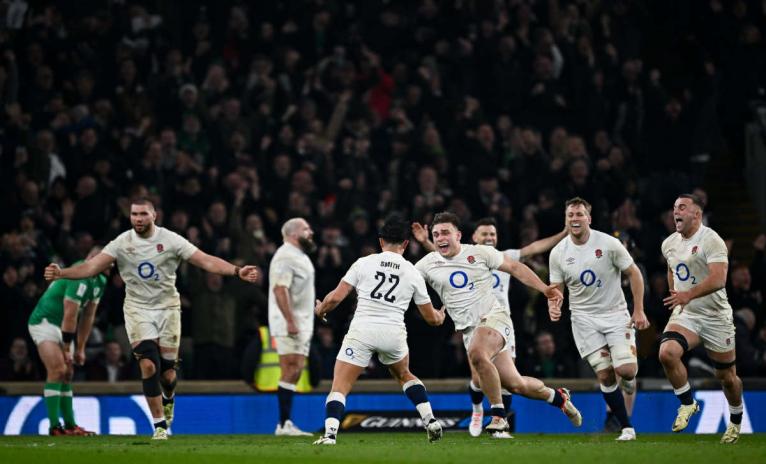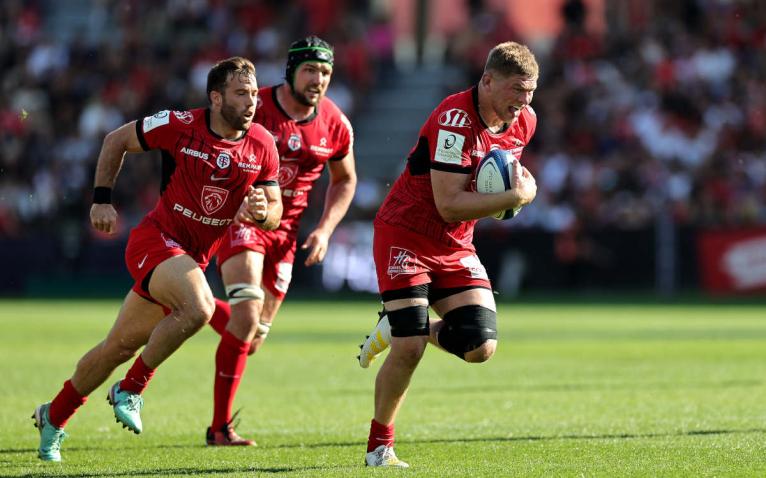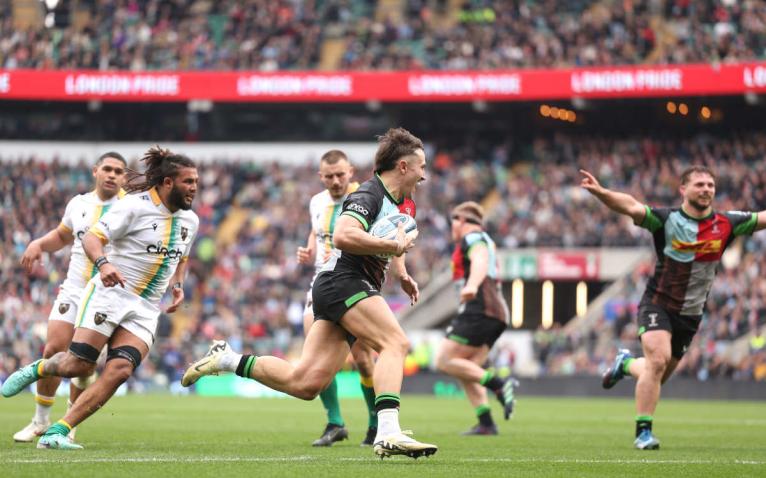There is not always a crock of gold at the end of the rainbow. A crock of something else, maybe, glistening, alluring but empty. After such storm-tossed times it is only natural to seek an antidote to the mess and misery of the last few years with clubs going bust and gloom descending. Yet even if there is promise and a sense of collaborative spirit about the impending £264million eight year deal between the RFU and Premier Rugby, it is as well to remind ourselves that pieces of contractual paper are just that – a dry accord between parties. Important, yes. But the be-all-and-end-all? No.
What will make the deal work is people. Good people. Selfless people. Big picture people and not tinpot protectors of their own little fiefdom. The best-interests-of-the-game people. Isn’t it a mark of the bleedin’ obvious that if England do well the whole sport benefits from the trickle-down, feelgood factor? You might argue at the moment that the product on the field in the Premiership is as good as it has been for many a year with high scoring jinks and a play-off run-in that is dramatic and edgy. You might argue that but to ignore the fact that there are dead-man levels of interest at the bottom with no relegation, that there is no real existence let alone growth plan for the Championship, that there is barely a dime of profit to rub together between the ten clubs that still manage to trade after three of their mates went bust is to have your head in the sand.
There are issues, deep-rooted, massive issues for the sport. That is the context in which this new deal has to be put. It is not a silver bullet, a cure-all. It is a start, no more than that. Those of us of a certain age still have anxiety-laden dreams pock-marked by thoughts of Leicester Agreements, Mayfair Agreements, Long Form Agreements that were all hailed as ground-breaking and a sign that the warring factions – essentially club and country – had put down their weapons and signed not just a truce but a deal that would suit the modern age and take the game forward.

Here we go again. Touch wood. There does appear to be more communal substance to this Agreement – the Professional Game Partnership – that might, only might, lead to a more mutually connected approach to the elite level of the game.
The Agreement is not yet quite signed off but according to The Daily Telegraph and The Times the essence of it is that 25 players will be awarded a hybrid contract worth between £150-160,000 a year. These monies will replace the standard match fee of around £22-23,000 per test match. The aim is to provide financial assurance to the leading players in a bid to offset the French raiders who have lured away the likes of Owen Farrell, Manu Tuilagi and Henry Arundell. The ten Premiership clubs will share a pot of £33 million per annum in return for Steve Borthwick having greater access to Strength and Conditioning programmes as well as medical data. Release dates for training camps and pre-test build-up are already enshrined in the calendar. There is more money – £264 million – going into the pot, a boon to those clubs that might well be shivering with apprehension at the prospect of the salary cap rising from £5million per season to £6.4million.
Will it work? Will it do for England what the Irish system has done for first, Joe Schmidt and now Andy Farrell? Will it turn Steve Borthwick’s side from the All Whites to the All Blacks, serial achievers in the professional era.
So much for the nitty-gritty. Will it work? Will it do for England what the Irish system has done for first, Joe Schmidt and now Andy Farrell? Will it turn Steve Borthwick’s side from the All Whites to the All Blacks, serial achievers in the professional era even if they have been trumped by South Africa at the last two World Cups.
Ah, yes, the Springboks. And, pray, what is their blue-chip system? How do they manage to locate the crock of gold with such regularity? Pots of money? Gilt-edged central contracts that give unfettered access to Rassie Erasmus to do as he pleases, a top-to-bottom pathway that delivers players that have been honed and nurtured in the Springbok way in much the manner that New Zealand used to do it with young players bending and rucking with ferocious intent, all at the same designated height from the moment they left the cradle?

Er, nope. Not a bit of it. Their players are flung far and wide much as the Argentinians are, earning a buck where they can and while they can, economic migrants with studs on.
You see there is no panacea, no perfect set-up, no one way guaranteed to bring success. It looked for all the world as if Fabien Galthie had everything in his favour, backed by the likes of deal-maker par excellence, Bernard Laporte, who, through his wily bargaining, managed to get the notoriously stand-alone Top 14 clubs committed to the national cause. Laporte also, hey presto, delivered a World Cup on home soil. And still France failed to get their hands on the Holy Grail. Nor did Ireland get past the quarter-final stage. Again.
Any deal is not a one-way ticket to paradise, 0therwise everyone would be clambering on board. What England desperately need is a feeling of everyone pulling in the same direction, of there being a sense of common purpose. It’s always been there in New Zealand. So, too, with the Springboks even if there are long-standing provincial rivalries beneath that causing occasional tension. Ireland have rallied behind the flag, France, too, latterly.
The clubs and the RFU have long been reluctant bedfellows. Yet they have to make the marriage work. The mood music is, at least, more soothing
The game in England has rarely, maybe never, had that same vibe, not even when the World Cup was won in 2003, a triumph in spite of the system rather than because of it as shown by the way in which it all quickly fell apart the following year as Clive Woodward departed Twickenham with a furious salvo at the RFU.
The clubs and the RFU have long been reluctant bedfellows. Yet they have to make the marriage work. The mood music is, at least, more soothing. The Telegraph reports that previous deals had a ‘transactional’ air about them, services rendered for wads of cash but without any adult conversation as to how to make it all come together for the common good.

At least, too, Eddie Jones, is no longer involved. The Australian had zero interest in the club set-up. The feeling was mutual. There is much more goodwill between the respective parties, more sound and sensible people involved intent on serving shared rather than vested interest.
Will it all pay off? Only if all concerned work together to make sure that it is not just the shop window that is well-stocked and eye-catching. The goodies on show come from many different sources, from the community game, from the leagues, from the Championship, the product of so much fine work from so many. They all need looking after, they all need resourcing. This headline news is encouraging, no doubt of that, but those storm clouds have not yet been entirely banished.



Comments
Join free and tell us what you really think!
Sign up for free